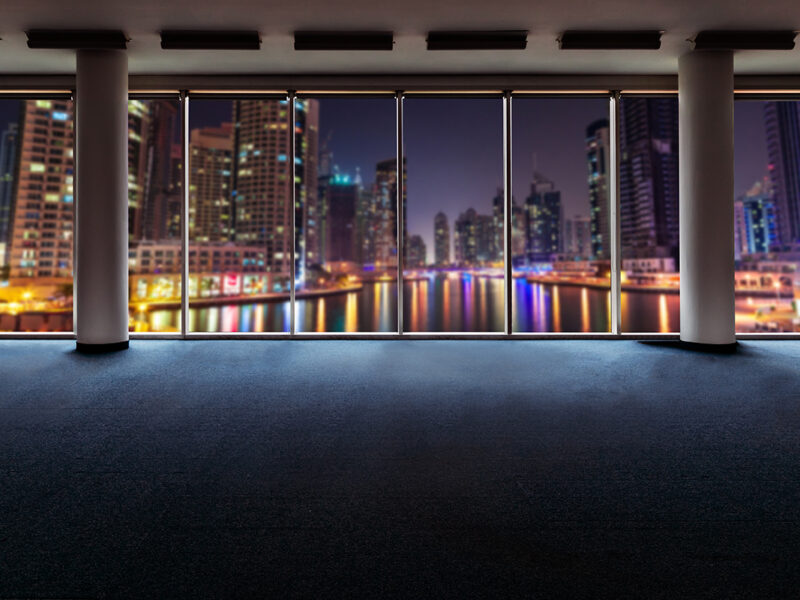After over thirty years as a leading player in the Middle East’s live events industry, former Mirage Promotions and later Live Nation managing director Elissa Murtaza is entering a new phase in her life. Now retired from the industry, she sits down with S&S to reflect on the highs and the lows of her career.
In expat terms, living in the Middle East for more than five years is generally considered a long time. It’s rare to speak to someone, particularly a Westerner, who arrived prior to the boom years of the late Nineties and early 2000’s, so when Elissa Murtaza tells me she first arrived in Bahrain in 1979, I’m immediately curious. Over thirty years on and she’s been one of the most influential players in building the regions event’s industry from humble beginnings to the, at times, well-oiled machine it is today. Until August, Murtaza was the managing director of Live Nation, topping off a stellar career spent promoting and booking events everywhere from Dubai, Beirut and Bahrain to Egypt and Libya.
At the request of her father, who was an agent in the UK, Murtaza arrived in Manama back in the late Seventies, on her own, ready to sell shows aimed at expat communities in the Gulf.
“It was a very different place back then. It used to take me two hours to do my appointments in Dubai, that’s how small it was,” she says.
“Usually I’d sell six or seven shows for the same act and then tour with the act when it actually came out, make sure they all got paid. I had two roles really, one was selling them and the second was being a tour manager. That’s the way business was conducted out here in the Eighties.”
Fast-forward ten years and Murtaza took a gamble in starting her own company, Mirage Promotions, which is perhaps her biggest legacy. A majority stake in the company was bought by Live Nation in 2006 although Murtaza remained as the managing director.
She admits the company’s name was evocative of her awareness at the time that the venture may not be as successful as it eventually proved to be. “Now you see it, now you don’t. In other words, who knows if it’s going to last.”
This blasé comment belies Murtaza’s true determination. She literally begged and borrowed her way into business and has fought wars, political unrest and the economic collapse of the past two years to keep her company not just afloat, but successful.
When starting out she had “a small corner of an advertising agency’s office that I managed to beg for for free. When you’re starting up your own business you can’t take on huge overheads, you’ve got to start really lean and really lean I started.”
This hands-on approach paid off. “Little by little money would come in and then I took my big gamble and promoted a show and it worked and then I started to find sponsors who also wanted to get involved in shows,” she exaplins. “I was then finally earning enough to bring in one member of staff, who then was with me for 10 years.”
Murtaza says she chose to start the company in Bahrain because, at the time, there was little difference between the Gulf cities. In 1996, however, Dubai was verging on a major boom and Mirage was so busy that an office was opened to achieve a permanent presence in the city.
“We were the only company of its type and probably still are, to have more than one office in the region. The Bahrain office looked after the North Gulf and Egypt and Lebanon and Jordan and all of those places and the Dubai office looked after the UAE,” she says.
But while booking shows kept her busy – Murtaza estimates over a thousand shows from the early Nineties until now – promoting her own shows was always in the forefront of her mind.
“Many of the shows I wanted to book were beyond our clients budget or they simply didn’t have the premises or desire, because, for most hotels and social clubs this wasn’t their core business, they weren’t looking for a high risk situation.”
She says a major corporate win through cigarette brand Benson and Hedges, which sponsored a series of concerts in the early days of Mirage, heralded a commercial changing point in the industry.
“Benson and Hedges sponsored an entire series of concerts with us throughout the Nineties, followed by Pepsi Cola, with a series aimed at young teens. Taking a slice out of their advertising budget and staking it on music was a huge leap of faith and almost certainly broke the ground for other corporates to follow a decade later.
“It was the first time that you saw all of this corporate branding at an event like that. If those companies hadn’t come forward and said, we will invest our marketing budget in that type of thing, things would have been very different. And this was before all the social media that exists now. It was a huge leap of faith, for all these corporate to say, we won’t put all our money into advertising, we will take a piece, and we’ll do events.”
Murtaza reflects that since she begun work in the region, not only has the commercial aspects of staging live events changed but more evidently, the scale of productions.
“Production was so limited out here in those days; you couldn’t be ambitious, even if you wanted to. You took the most basic stage, the most basic sound, and you made the best of it. John Henry’s, were the first to come in with meaningful equipment. Before then, you took anything that anyone had. Sometimes hotels had a PA system, a few lights.”
Far from today’s flourishing professional kit sector, the lack of lighting and audio equipment, for example, determined the type of shows that were produced. “It was, yes, we can do comedians, we can do a very simple set up for a band,” Murtaza explains.
She describes the first Gulf war as a “watershed”, explaining that once it was over, the area was revitalised, thus creating an environment that saw the birth of production houses like Gearhouse and Protec in the region. “That changed the business. Once production came in it meant you could think differently,” she says.
The Gulf war and subsequent civil and political unrest have proved to be the biggest hindrances to business, more so than the economic factors that have troubled the region in recent times.
“Economic – you can always find ways around it, you can convince artists to take less money, you can lower your ticket prices. Politics are always out of your hands,” Murtaza believes, adding that being resourceful is her mantra.
“In 2003 just before the second Gulf war, we had Shakira confirmed to perform in Cairo and Dubai and before we could even announce it, war was declared. And so we had to can it and everyone went to sleep for six months basically, waiting for the war to be over, then you’ve got to wait for people confidence to build back up – and the artists.”
In these hard-times, she says looking to less “sexy” events and government contracts helped keep Mirage in a profitable position and retain staff, a fact of which Murtaza is almost maternally proud-of.
She offers the following advice: “You can often make more money on something that isn’t as ‘in your face.'”
“Sometimes here, shows are deceptive because you see 10,000 people and people assume that the promoter must be making money but quite often it’s a borderline of just breaking even. Whereas you can do a smaller event – 3,000 people -you can make yourself a tidy profit. I’ve never been against that and in times of political unrest, I’ve certainly gone down that road of going for something low-risk.
The more obvious high’s of Murtaza’s career would be assumed to be bringing international superstar’s like Sting, Shakira, Coldplay and Mariah Carey to the Middle East, but Murtaza gives the example of the “Peace Message from Libya” concert in 2005 as one of her most satisfying.
The country’s planned event to promote a positive message despite the anniversary of its bombing by the US threw up almost endless challenges, she explains.
“It was a terrifically hard sell but I’ve never walked away from a challenge. I love adventure and that’s what probably brought me out to the gulf in the first place.”
She admits that when first contacted by an official in Libya, she thought it was a hoax. “It sounded so implausible. I remember taking the calling and thinking, this is so ridiculous, I’ll just forget about it. But the person on the other end of the phone was very persistent and called me every day for the next four days, they were very well spoken and very intelligent.”
A face to face meeting in the country followed and despite coming away concerned at the time-frame of the project – she had just three weeks to pull it off – Murtaza agreed to help and embarked on the gargantuan task of attracting a well known artist to perform and staging the event. She also managed to give international credibility to the event, garnering the official support of the UN.
“After a week we managed to get two acts – we managed to get Lionel Ritchie and Jose Carreras and an 80-peice orchestra. What followed then was brining out production from here because there’s no production in Libya so we had to bring out a stage, sound, lights. Miraculously, because there were so many problems involved with it, it was a success. And it broke the ground. It made people look at Libya in a slightly different way. Lionel Ritchie still talks about it to this day.”
In what was and still is a largely male-dominated industry, Murtaza, a mother of two, says she has taken strides to rise above the gender imbalance: “You really do have to have the skin of a rhino.”
“I’ve probably given more women opportunities in my business than men because I knew that it’s harder for a woman to get a break in the entertainment business – unless you’re an entertainer. In the early days when I was much younger and I was with the acts that I brought over for my father, they just assumed I was the dancer. Nobody would assume that I was the tour manager.”
Now retired, she splits her time between Bahrain and LA, where her fiancée Chris Lamb, an industry icon who started his career with the Jimi Hendrix and is currently the long-time tour director for Madonna, is based.
“When I started my own company, I thought, this could all fold in a year, I had no idea how long it could go on for. But as the years went by, I told myself that when I got to a certain point in my life, if I’ve done everything I wanted to do, I will stop. And I think I’ve done everything I wanted to do. I like the feeling that I took the company to the top and kept it at the top,” she explains.








